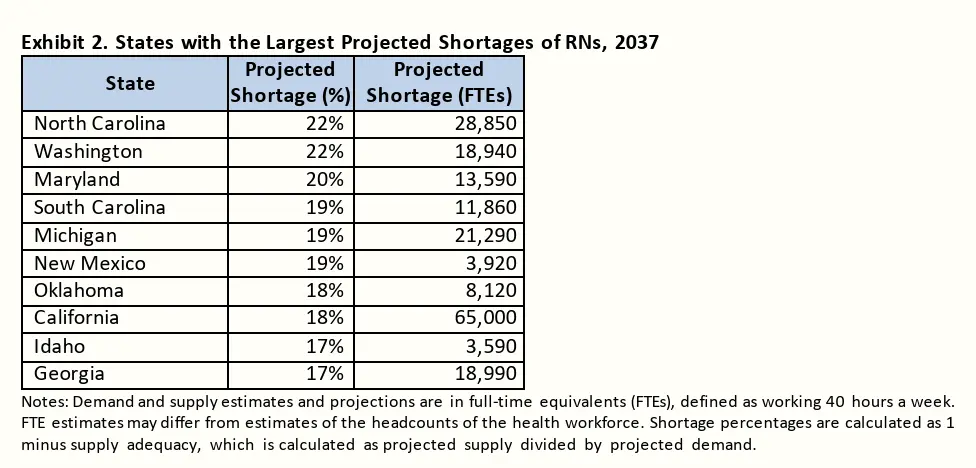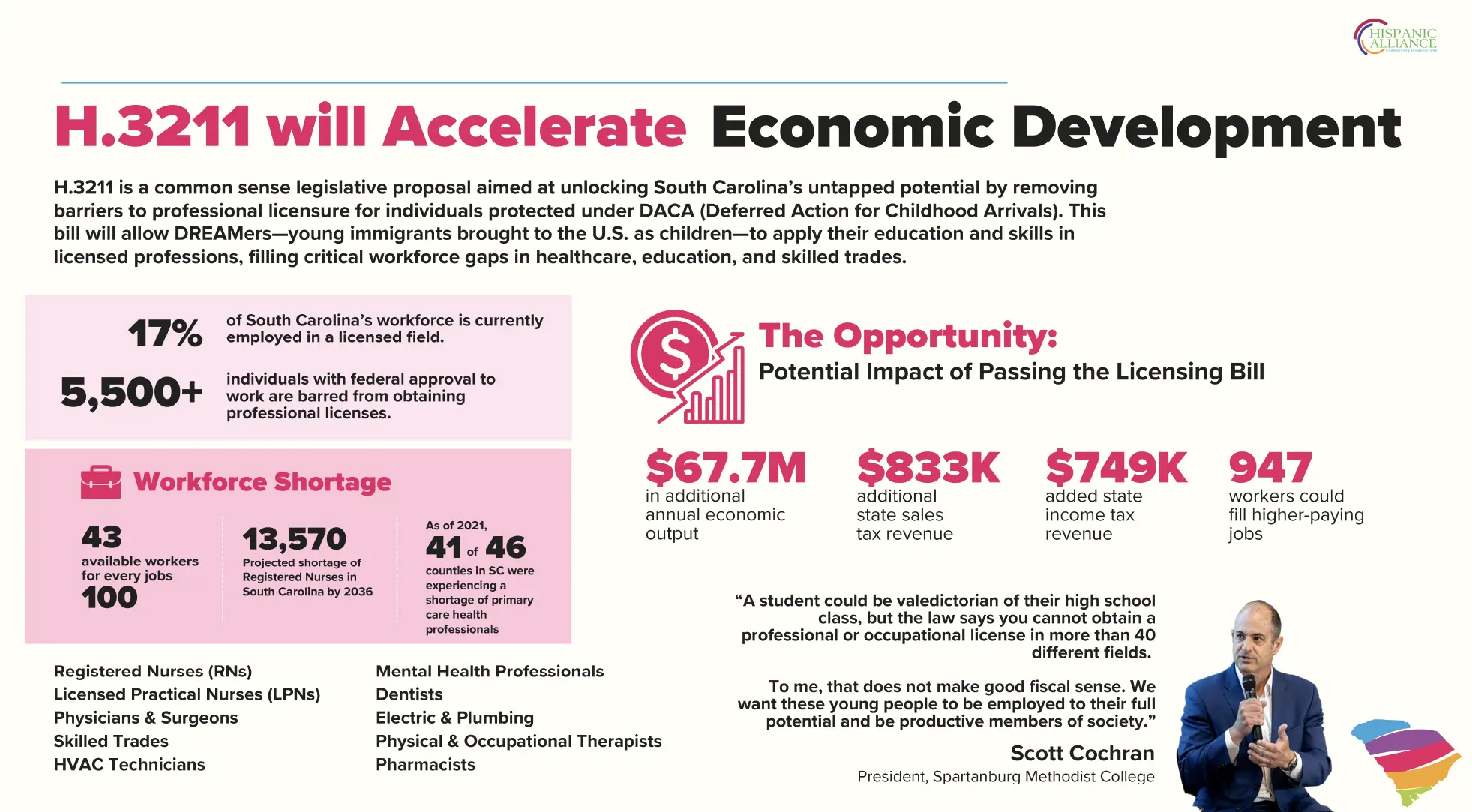A Growing Economy Needs a Strong Workforce
South Carolina’s economy is growing, but across multiple industries, job openings outnumber available workers. In fact, for every 100 jobs, only 43 workers are available to fill them—one of the worst shortages in the country.1
At the same time, thousands of qualified, legally authorized workers in South Carolina are barred from obtaining professional licenses due to outdated regulations. These individuals—including DACA recipients, TPS holders, and asylum seekers—already have federal work authorization but are blocked from obtaining state-issued licenses required to work in healthcare, education, skilled trades, and other critical professions.
SC House Bill 3211 (H.3211) provides a practical solution: It allows qualified, legally authorized individuals to apply for occupational and professional licensure in South Carolina just like anyone else who meets the necessary qualifications.
This bill is not a pathway to legal status or citizenship—it is a workforce policy that removes unnecessary barriers and helps South Carolina compete in an increasingly tight labor market.

How Workforce Shortages Are Impacting South Carolina
H.3211 directly addresses some of South Carolina’s most pressing workforce challenges:
Healthcare: Meeting the Needs of Patients Across the State
- 11,860 registered nurses will be needed in SC by 2037 (4th highest projected shortage in the U.S.).2
- 45 of 46 counties are experiencing primary care provider shortages.3
- Without enough licensed healthcare workers, South Carolinians face longer wait times and reduced access to care—especially in rural communities.

Skilled Trades: Keeping Up with Growth in Construction & Infrastructure
- South Carolina has 77,590 construction jobs, yet many skilled trades lack enough workers.4
- Electricians: 13% projected job growth in SC by 2030.5
- Plumbers: 7% projected growth,6 with 660 job openings per year.7
- Carpenters: 1,150 projected job openings by 2030.8
Licensing barriers prevent workers from filling these roles, slowing down construction projects and infrastructure development statewide.
Education: Addressing the Teacher Shortage
- 1,613 vacant teacher positions at the start of the 2023-24 school year.9
- The teacher shortage increased 9% in just one year.10
- Schools across the state are struggling to find qualified educators, leading to larger class sizes and fewer learning resources for students.
By allowing DACA recipients and other legally authorized workers to obtain teaching licenses, H.3211 helps fill these vacancies with skilled, qualified educators.

The Economic Benefits of H.3211
H.3211 isn’t just good for the workforce—it strengthens South Carolina’s economy.
- 947 new licensed professionals could enter the workforce.11
- $67.7 million in additional economic output.12
- $1.58 million in new state tax revenue.13
These jobs already exist—H.3211 ensures South Carolina has the workforce to meet demand.
Why Now?
South Carolina is one of 16 states with the most severe workforce shortages.14 If we want to remain competitive and continue growing our economy, we must ensure our workforce policies align with labor market needs.Other states have already adapted their licensing laws to allow legally authorized individuals to obtain professional licensure. South Carolina now has the opportunity to stay competitive and strengthen its industries by doing the same.
- U.S. Chamber of Commerce, Workforce Data, August 2023. (Source) ↩︎
- Bureau for Health Workforce, Nurse Shortage Projections, 2024. (Source) ↩︎
- South Carolina Health Professions Data Book, 2021 (Source) ↩︎
- Bureau of Labor Statistics, SC Construction Employment, 2023. (Source) ↩︎
- ONET, SC Electricians Job Growth, 2024. (Source) ↩︎
- Bureau of Labor Statistics, Plumbing Industry Report, 2024. (Source) ↩︎
- ONET, SC Employment Trends: Plumbers, Pipe Fitters, and Steam Fitters, 2024 (Source) ↩︎
- ONET, SC Carpenters Job Projections, 2024. (Source) ↩︎
- Center for Educator Recruitment Retention and Advancement, SC Teacher Shortages, 2023. (Source) ↩︎
- Center for Educator Recruitment Retention and Advancement, SC Teacher Shortages, 2023. (Source) ↩︎
- The Lost Economic Impact of DACA Eligible Students in South Carolina, 2024. (Source) ↩︎
- The Lost Economic Impact of DACA Eligible Students in South Carolina, 2024. (Source) ↩︎
- The Lost Economic Impact of DACA Eligible Students in South Carolina, 2024. (Source) ↩︎
- U.S. Chamber of Commerce, Workforce Shortage Categories, 2023. (Source) ↩︎


